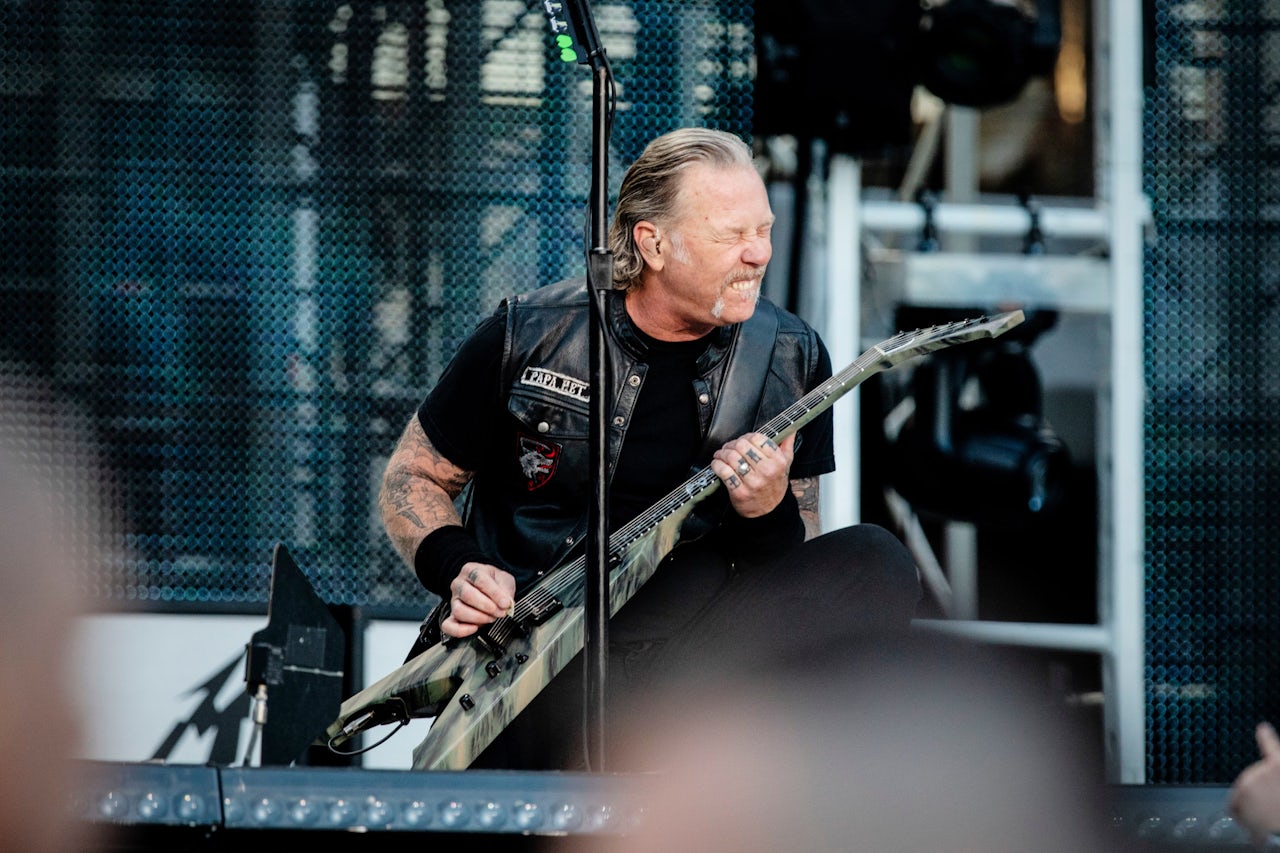The latest edition of The Economist includes a study with the revelation that people who vote the same way tend to have similar musical tastes. Going off of concert data provided to them by a firm called Vivid Seats, the magazine compared ticket sales (by musical genre) in a given region with the way that same region voted in recent elections. Republicans, per the mag, tend to like country, while Democrats gravitate more towards hip-hop. Not shocking, really, if you have observed a single cultural stereotype in the last 30 years.
What’s a little more interesting, however, is that The Economist found regions that voted for Barack Obama in 2012 but went for Donald Trump in 2016 tended to listen to what the magazine referred to in its headline as “heavy metal.” As a former professional music journalist, my idea of heavy metal is probably very different from what The Economist’s idea of heavy metal is, so before I read through the article, I was envisioning a group of middle-aged Pig Destroyer fans switching allegiances in the most brutal betrayal since the time Black Sabbath fired Ozzy Osbourne. But alas, this is not what The Economist was referring to:
The politics of hard-rock acts like Metallica, AC/DC and Guns ‘N’ Roses — who are particularly popular in places that voted for Barack Obama in 2012 but Mr Trump in 2016 — are less clear. Politically active rockers tend to lean left. However, the best-selling rock groups are older than most pop stars or rappers, suiting many Trump voters’ nostalgia. And among Mr. Trump’s often rowdy fans, their belligerent, anti-establishment music may strike a chord.
So pretty clearly, what we’re dealing with here is not actually metal and is instead “classic rock that people who don’t like music would probably refer to as heavy metal.” At this point, bands like the ones described above are so ubiquitous that it’s hard to make any meaningful generalizations about their fan bases besides “they like songs about rocking,” though The Economist is trying its best.
Let me make another, ruder suggestion, though. Groups like the ones The Economist highlights are some of the biggest concert draws in the country — GNR had the second-highest-grossing tour of the decade, while AC/DC had the fifth-highest and Metallica the seventh, per Pollstar data that was helpfully collected by Wikipedia users — in part because they appeal to the type of person who doesn���t “like music” but still knows that concerts are a fun thing to go to, and that since everyone is at least kind of familiar with these bands’ music, they might as well go see Metallica, Guns ‘N’ Roses, or AC/DC when they come to town. These bands make money playing their old hits for audiences of people who have had years to passively absorb them (I don’t think I’ve ever listened to “Sweet Child O’Mine” on purpose, but a lifetime of hearing the song in public means I know all the words anyway).
Presidential elections are similar to attending a Metallica concert, in that people who don’t actually care about politics on a granular level — and may only have a cursory understanding of what each candidate cares about beyond guessing based off a vague sense of their personalities — are more likely than usual to participate in them. The correlation between Obama-Trump voters and these bands isn’t an indicator of preference at all; it’s more likely a sign that these people don’t really give a shit about music or politics.
Maybe the soft middle of American politics can be swayed through the strategic deployment of popular bands that no one cares about.
This is different from pure nihilism, because it’s not that these people don’t care; it’s just that they care about different things. And so, in 2012, they voted for Obama because it seemed like the thing to do, and in 2016, they turned around and voted for Trump because that seemed like the thing to do then. A few weeks after each election, probably, they drove 45 minutes to the Kroger-Hertz Arena or whatever and saw Trans-Siberian Orchestra play Christmas songs on guitars, because that seemed like the thing to do too.
This isn’t to say that there aren’t conservative musicians who operate within the same hard-rock idiom as the bands I’m talking about here — Igor, project this picture of Kid Rock and Ted Nugent with Sarah Palin and Trump in the Oval Office onto the wall of the laboratory — but for the most part, as The Economist duly notes, “politically active rockers tend to lean left.” However, even if the type of people who are randomly going to a Guns ‘N’ Roses concert are aware that Axl Rose is now part of Resistance Twitter, they probably would not care. Part of having bad politics — and to be clear, switching from Obama to Trump because you just sort of felt like it is very bad politics — is accepting that the people who make the art you consume believe in different stuff than you. As we’ve seen with Kanye West’s more-insane-by-the-day embrace of Donald Trump and then family-values conservatism, the left tends to have a much harder time with this than the right does. (Witness their ongoing love of Bruce Springsteen, for example.)
Then again, maybe the soft middle of American politics can be swayed through the strategic deployment of popular bands that no one cares about. If undecided voters are indeed also undecided on what kind of music they actually like, then perhaps the left would do well to align itself with the most generic musicians possible. The Red Hot Chili Peppers playing a Bernie Sanders rally in 2016 was a good start, but as he attempts to capture the 2020 Democratic nomination, Bernie needs to go bigger and blander. Just imagine how many people he could win over by coming onstage during a Nickelback concert.
